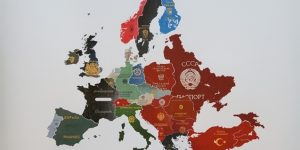
“Border areas […] are not marginal to the constitution of a public sphere but rather are at the center. If Europe is for us first of all the name of an unresolved political problem, Greece is one of its centers.” Etienne Balibar’s approach remains relevant for this Graduate Colloquium, in which we will address post-World War II designs of a European transnational territory from the critical standpoint of the Spanish dictatorship (1939-1975) in the southern Mediterranean border. By tarrying with Balibar’s proposal, there is a double peripherality that needs to be addressed: firstly, the marginalization to which criminal figures were condemned under the dictatorship; secondly, the peripheral position that the Francoist dictatorship occupied in the European transnational project. As we move from processes of criminalization to the Southern dictatorship and finally to the early European transnational project, the discourses of Francoist technocrats get entangled with those of Alexandre Kojève, Carl Schmitt and the Ordoliberals. From this entanglement, a European notion of “we” emerges that throws together a Catholic fundamentalist dictatorship, an imperialistic understanding of Europe and early neoliberal rationalities.
Ibai Atutxa is a PhD Candidate in the Latin American and Iberian Cultures Department, the Institute for Comparative Literature and Society and the Institute for Research on Women, Gender and Sexuality. He is presenting a chapter from his dissertation Transiting through the Toxic. Deviants and Criminals in the Age of Oil and Financialization.







